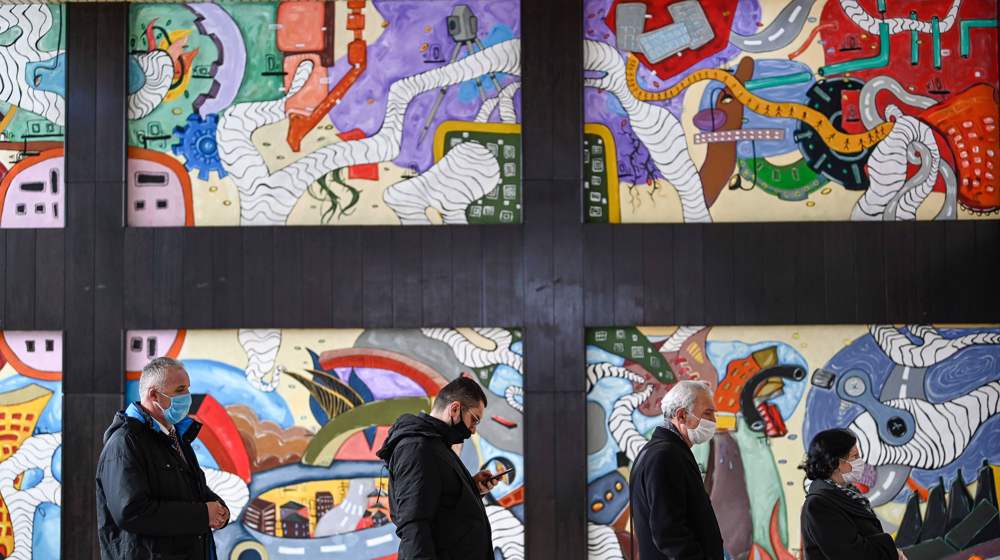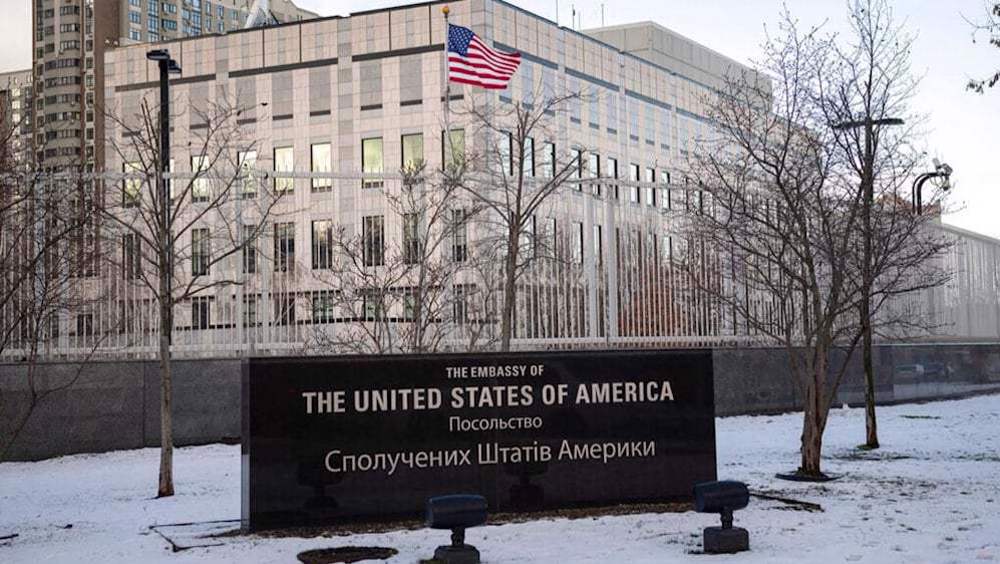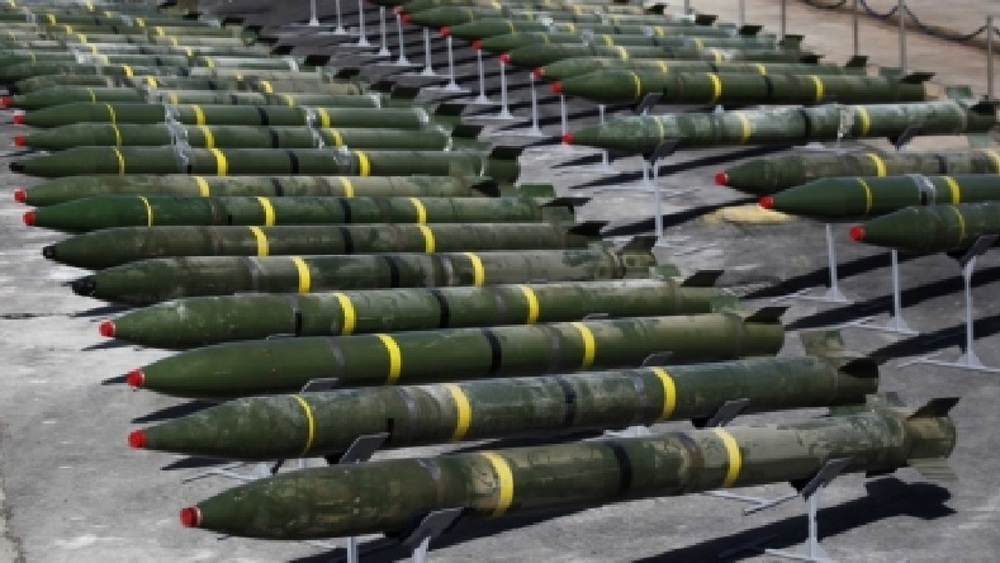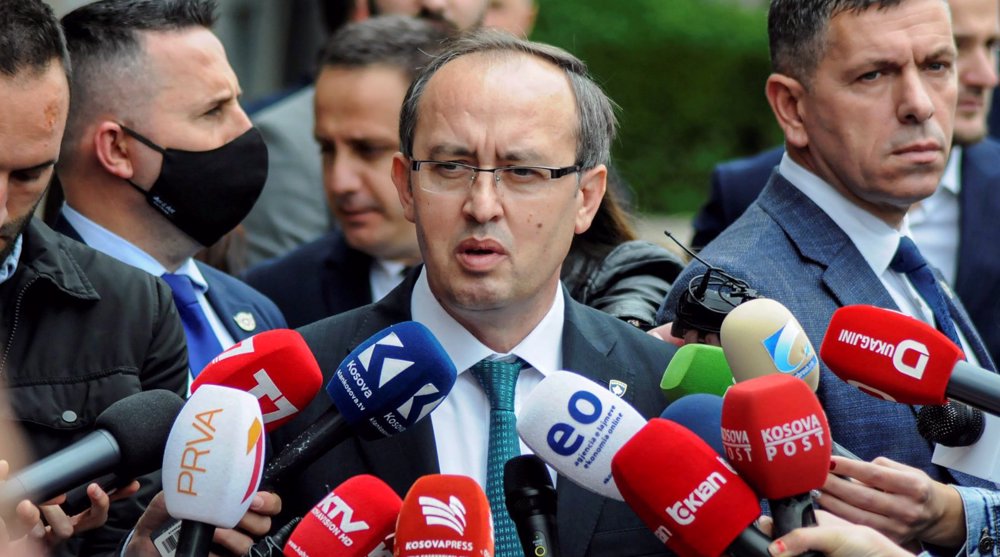Kosovars vote as new generation of politicians expected to take lead
Kosovars went to the polls Sunday in an early election that could see a new generation of politicians take the lead after tapping into widespread frustration and fatigue with the political establishment.
The general election comes after a year in which the coronavirus pandemic has deepened social and economic crises in the former Serbian province, which declared independence 13 years ago.
Already one of Europe's poorest economies, Kosovo is now struggling through a pandemic-triggered downturn, with vaccinations yet to start for the population of 1.8 million.
"The people are waiting for change, they are waiting for the removal of these (problems) that have hindered us, such as corruption and nepotism," Sadik Kelemendi, a doctor said.
"We should also dedicate ourselves to (fighting) the pandemic," he told AFP before casting his ballot in the capital Pristina, where snow covered the ground and temperatures were below freezing.
The party of Vetevendosje (Self-determination) -- an anti-establishment protest movement turned progressive political party -- looks set to benefit from a growing hunger for change.
Polls place it in a comfortable first place, though potentially short of an absolute majority.
The party, once known for provocative stunts such as unleashing tear gas in parliament, has been campaigning on an anti-corruption platform, accusing traditional elites of squandering Kosovo's first years of independence with graft and mismanagement.
For most of the past decade, Kosovo has been run by the former rebel commanders who led the 1990s rebellion of ethnic Albanian guerrillas against Serb forces.
But their camp is now missing its top leaders after a court in The Hague detained ex-president Hashim Thaci and others in November on charges of war crimes dating back to the conflict.
Analysts say this has helped open a path for Vetevendosje, whose calls for change may even win over some who do not align with the movement's radical past, including sometimes violent protests and anti-West rhetoric.
"For many, Vetevendosje is being seen as the last resort which will either make or break the country," Donika Emini, executive director of CiviKos Platform, an umbrella group for NGOs, told AFP.
'New generation'
Led by 45-year-old former political prisoner Albin Kurti, Vetevendosje has finished first in the last two parliamentary polls.
But in both cases it was eventually outmaneuvered by other parties who united to form majority coalitions.
After the 2019 election, Kurti was prime minister for a brief 50 days before his coalition crumbled.
This time he is confident he can translate his victory into a lasting government.
"We are coming, they are leaving," he told supporters ahead of the poll.

Rivals have been attacking Kurti -- who enjoys fervent devotion among fans -- of preparing "a dictatorship" that could threaten Kosovo's important alliance with the US.
They are also pledging to create jobs and raise salaries.
But the latest polls suggest their promises are ringing hollow for many, with the Democratic Party of Kosovo (PDK) -- the party of ex-rebels -- projected to be in second place with around 20 percent of the vote, followed by the outgoing Democratic League of Kosovo (LDK).
This time Kurti is also boosted by his alliance with acting President Vjosa Osmani, a dynamic 38-year-old who recently joined his side after leaving the LDK.
"I think it is about time that Kosovo is led by not only a new generation of politicians in terms of age, but especially in terms of mindset," she told AFP.
Brain drain
Kurti and Osmani are particularly popular among young people who feel betrayed by their current leadership.
Youth unemployment tops 50 percent in Kosovo, forcing many to go abroad in a growing "brain drain" crisis.
While Kurti himself cannot run as an MP -- he is banned due to a 2018 court conviction for unleashing tear gas in parliament -- his party could still appoint him as their prime minister.
There are also 20 seats reserved for ethnic minorities in the 120-member assembly, half of them for the Serb community, which remains strongly aligned with Belgrade.
During this campaign, there has been minimal talk about the stalling negotiations to resolve Kosovo's "frozen conflict" with Serbia, an issue with Kurti is expected to take a hardline stance on.
Belgrade refuses to recognize Kosovo's statehood, a source of major tension in the region and an obstacle for either side to someday join the European Union.
Polls will close at 1800 GMT, with initial results expected in the late evening.
(Source: AFP)
VIDEO | Press TV's news headlines
Iran FM: Response to Israeli aggression 'inevitable'
VIDEO | Iran eases the rules for exporting hand-woven carpets
VIDEO | Intl. Day for the Elimination of Violence against Women: A stark reminder of Gaza women
Australia denies ex-Israeli minister Shaked visa
VIDEO | 85% of Yemeni displaced people face daily hunger crisis
US House passes bill targeting charities and pro-Palestine groups
VIDEO | Supporting Gaza genocide













 This makes it easy to access the Press TV website
This makes it easy to access the Press TV website